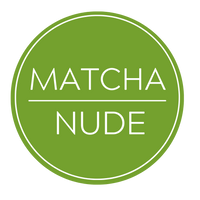Have you ever found yourself standing in the tea aisle, staring at both matcha tea bags and matcha powder, and feeling completely lost about which to choose? You’re not alone! It’s a common conundrum that leaves many tea lovers scratching their heads. Let's dive into the differences, debunk some myths, and help you make an informed choice.
The Misleading Appeal of Matcha Tea Bags
Many people reach for matcha tea bags because they’re familiar, seemingly easier to use, and often perceived as cheaper. However, these assumptions are often incorrect. Here’s why:
- Misleading Content: Most matcha tea bags contain only about 2% matcha. The rest is typically green tea. If you’re looking for the true benefits of matcha, this is not the way to go.
What Is Matcha?
To clear up any confusion, let’s break down what matcha actually is:
- Pure Matcha: Matcha is powdered green tea that is 100% dissolved in water, meaning you consume the entire tea leaf and get all its nutritional benefits.
- Regular Green Tea: This is steeped, and you only get the nutrients that steep into the water, leaving the rest behind in the tea bag.
Matcha is green tea BUT not all green tea is matcha.
Convenience: Not Always as It Seems
Tea bags are marketed as a convenient option, but are they really saving you time or effort?
- Tea Bags: Instructions usually recommend steeping for 3-5 minutes.
- Matcha Powder: You can make a refreshing iced matcha latte or matcha lemonade in just 1 minute. No steeping required! Learn more on our Matcha 101 resource page.
Nutritional Value: The Real Deal
When it comes to nutrition, matcha powder is vastly superior:
- Matcha Powder: Contains 10 times the nutritional value of green tea. You are consuming the entire plant that is grown intentionally, paying close attention to soil health and shading. It is dissolved so your body is getting all the antioxidants, amino acids, catechins, vitamins + minerals.
- Matcha Tea Bags: Mostly green tea, offering far fewer benefits - although some great ones but because it is steeped, you are not ingesting all the greatness matcha has to offer.
Don’t be swayed by the marketing schemes. If you’re seeking the full health benefits of matcha, the powder is the way to go.
Cost-Effectiveness: A Closer Look
Many assume tea bags are the more economical choice, but let’s break down the numbers:
- Matcha Tea Bags: Seem cheaper at first glance but offer less matcha per serving.
- Matcha Powder: A 50g bag can provide 50 servings at just 48 cents per serving. When you consider the nutritional value, matcha powder offers both quality and value.
Quality Matters
If you’re aiming for the specific benefits of matcha, such as higher antioxidant intake, better energy, and enhanced mental clarity, pure matcha powder is the superior choice.
The Bottom Line: Not the Same Thing
It's important to recognize that “matcha” tea bags and matcha powder are not the same. They each may have a place in your routine, but understanding the differences ensures you get what you’re looking for.Next time you find yourself debating between matcha tea bags and matcha powder, remember:
- Pure Matcha Powder: Offers full nutritional benefits, is convenient, cost-effective, and high quality.
- Matcha Tea Bags: Mostly green tea, less nutritional value, potentially misleading in terms of content.

1 comment
Loved reading this! Great but totally to the point and gave informative in depth value!
Leave a comment